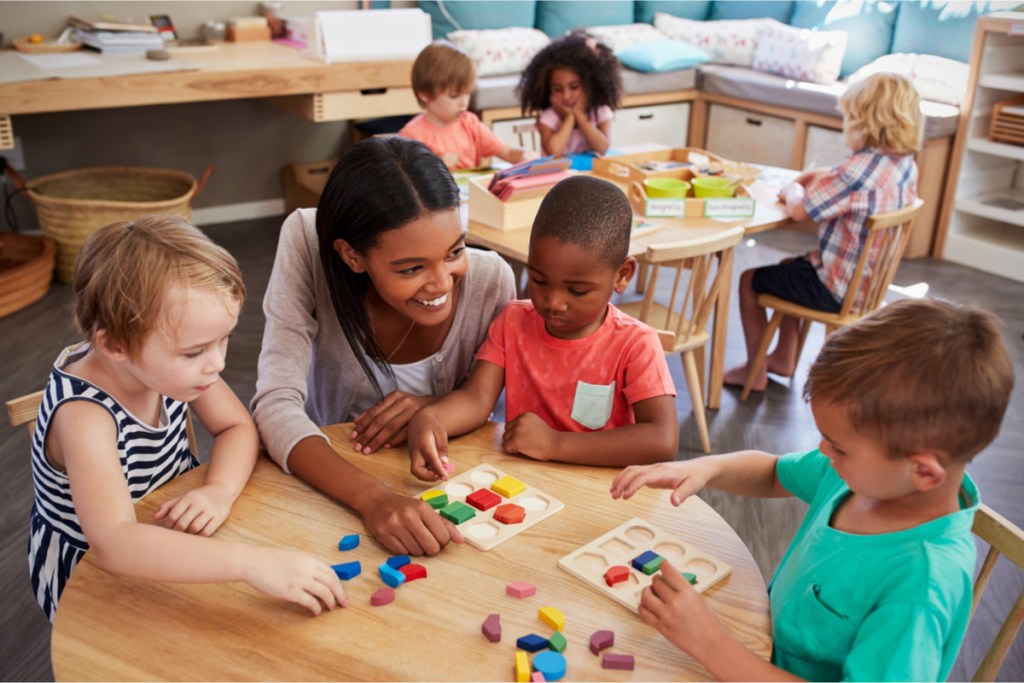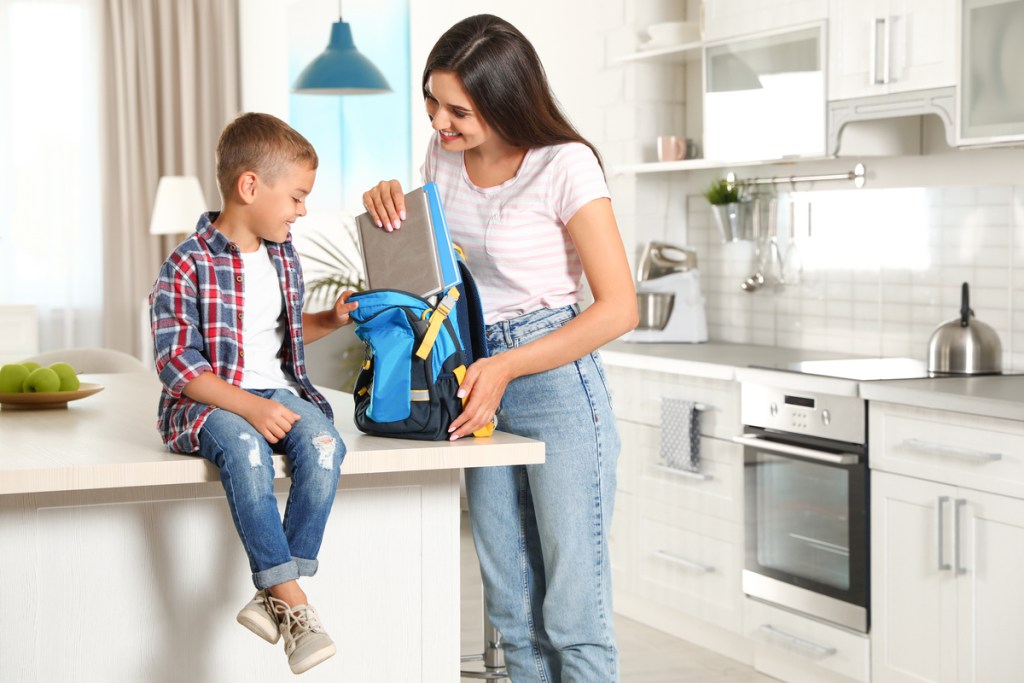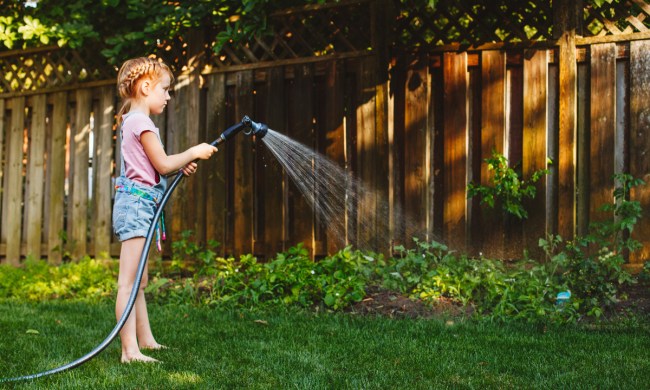
Preschool? Already? If may feel like you just had that baby, and you may want to hang on to that little hand a bit longer, but growing up is kind of the whole point of having a child. No parent wants to see their precious human fall behind academically, but there also might not be a choice if a child goes to preschool because of a work schedule.
If your family needs to enroll your tiny human, what age is preschool best for? If your tot has to start school for whatever reason that works for your family, here are the ages for enrolling in preschool.
Preschool breakdown by age

Things are a little different these days, with preschool and pre-K being almost the same, yet slightly different. Like middle school, grade school, and high school, preschool goes by age, so infants won’t be trampled by toddlers. Hopefully. Here’s where your child would land on the preschool lineup.
Preschool information for the kids
- The age range is 2 to 5 years old.
- Learning is more abstract here.
If you can’t remember the difference between pre-K and preschool, look at the names. Preschool is what the name implies — the time before any schooling takes place. Children in this category are preparing for school. There are half-day and full-day preschools where kids learn what they need to know to enter a school setting.
Kids learn more about self-awareness, experience imaginative play, work on gross motor skills, and learn how to problem-solve. Your child isn’t learning how to read or basic handwriting specifically yet. It’s more the cognitive fundamentals behind those actions children need to develop first. Keep that we all must crawl before we walk theory in mind.
Pre-K for the kids
- The age range is 4 to 5 years old.
- Learning becomes more concrete at this stage.
Pre-K is pre-kindergarten, so this stage is prepping those kiddos for kindergarten. They will work on basic counting, writing their letters, and being independent in a classroom setting. This is the walk before the run of kindergarten. Pre-K has kids ready to tackle kindergarten confidently. They may not know the entire alphabet, but they know it exists, and there are letters in there in some sort of order.
Preschool answers for the parents

We don’t know who has the more difficult school transition — the kids or the parents. If your child is in the preschool age range, here’s the information you’ll need to know.
Preschool isn’t necessarily mandatory
Preschool is not exactly required for children. Whether your child needs to go or not to enroll in kindergarten is something you will have to look into for your school district. Some schools want children to take a readiness test for kindergarten, and preschool would help children to do well on the assessment.
Sending your child to preschool if it’s not required is one of those parental preferences. If you can teach them everything on the kindergarten readiness assessment, that will be your call. If you’re planning on homeschooling your children, then no, preschool wouldn’t be a requirement at all.
Preschool can be good for children
If you are going to send your child to school, preschool is a gentler way to get them ready. Even a half-day preschool will prepare a kid for the routine they will experience in kindergarten and beyond, so it isn’t a shock to their system on day one. Learning how to interact with other children, the day-to-day routine, independence, and getting in a little physical movement are all ways preschool could be beneficial.
How to know if your child is ready for preschool

We don’t want to stress anyone out, but even for preschool, your child has to meet certain requirements and milestones.
Preschool entry checklist
- Child has transitioned away from naps
- Child is fully potty trained (accidents happen, but the child should be out of pull-ups)
- Child knows how to interact with other kids on a basic level
- Child can speak for themselves
- Child can do independent tasks like open their lunch and use the restroom
- Child can stand being away from their parents for at least a half day
Most preschools will have a quiet time at some point, and maybe a little nap time if it’s a full-day program, but kids should be done with naps before they start preschool. While accidents happen (sneezes are a mom’s enemy, right?) kids should be fully potty trained enough to tell when they need to go, even if they need a little help.
We know children don’t like to share sometimes, but basic human decency and an understanding of kindness toward others is a must. Since this may be the first time the kids are away from the parents, your child will need to know how to verbalize their needs. And yes, they will need to be comfortable not having their parents at their side while at preschool.
You are either a parent who is dreading your child starting school and not seeing them every second of every day, or you are a parent who can’t wait for a few hours to try to remember who you were before having kids. Either way, we support all parents. If sending your child to preschool is in the cards, they could start as early as 2 years old. If you want to kiss those beautiful heads a bit longer, preschool-age kids can be up to 5 years old. As long as you and your child are happy, send them to preschool at the age you feel comfortable with.



